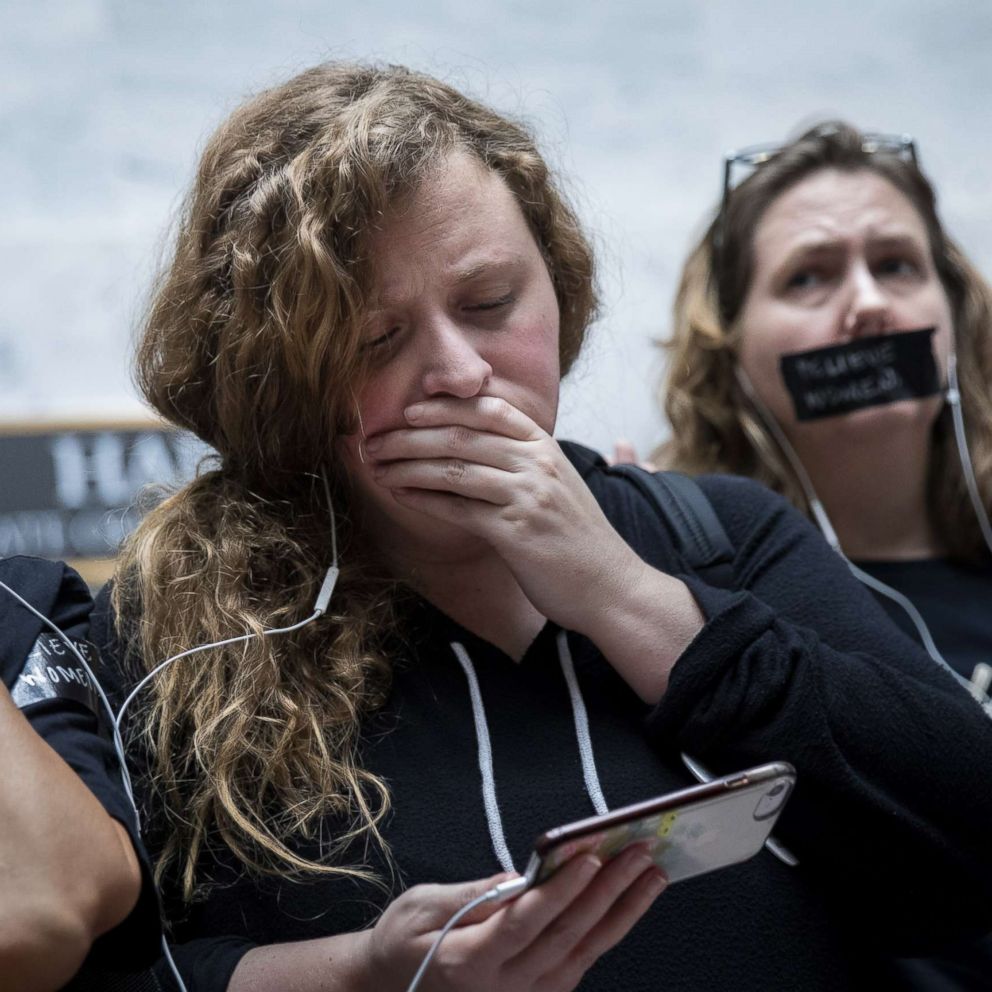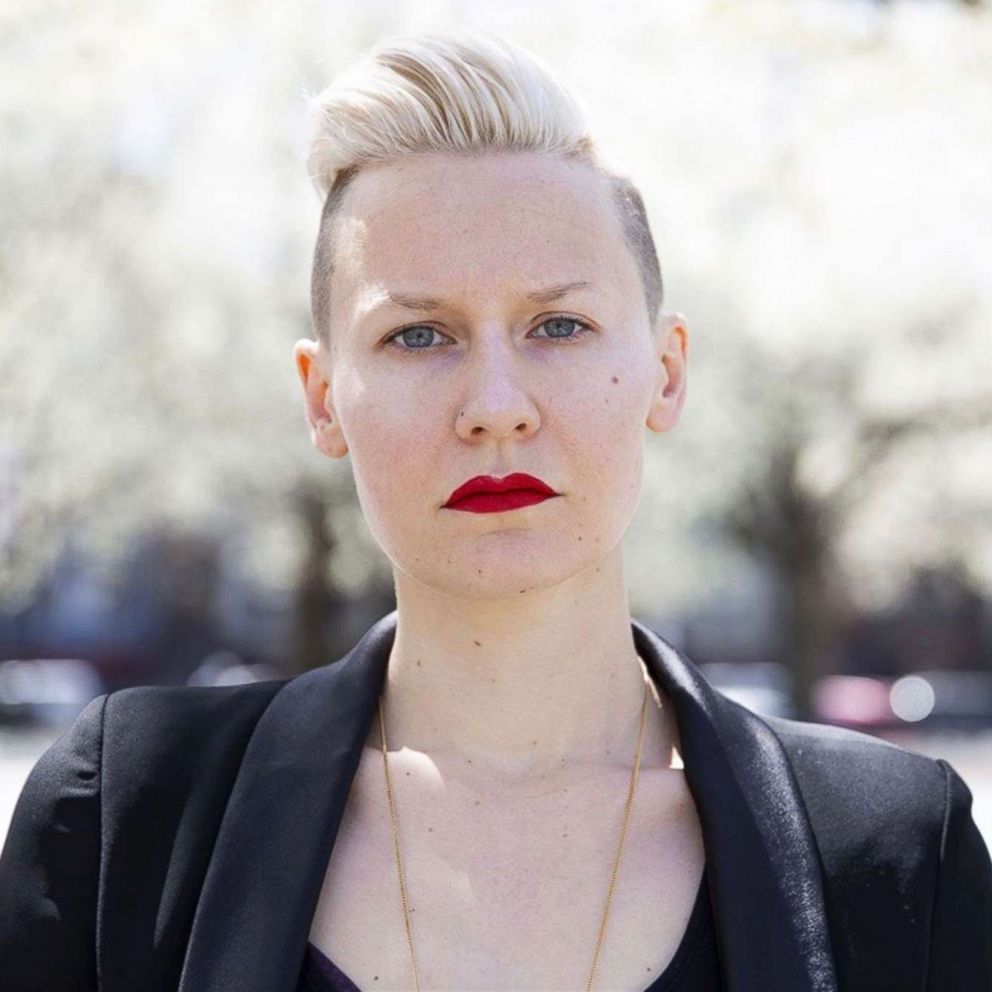Kavanaugh, Ford hearing triggers memories for sexual violence survivors
Christine Blasey Ford testified she was "terrified" to speak out.
While the nation remained gripped to the testimony of Christine Blasey Ford and her allegation of sexual assault against Supreme Court nominee Brett Kavanaugh, survivors of sexual assault are having another experience.
Jeanette Morelan, 23, a sexual assault survivor, described Thursday's hearing and the days leading up to it as surrounded by "heaviness."
"Watching the hearing, I felt like [Ford] was still in such pain," said Morelan, now a volunteer for RAINN, the Rape, Abuse and Incest National Network. "I feel like that’s pain that we all carry with us that doesn’t quite go away, particularly in reliving the experience."
RAINN estimates that during Thursday's hearing, the National Sexual Assault Hotline saw a 147 percent increase above normal volume. The organization also saw a 57 percent increase in calls to the hotline last Friday to Sunday, compared to the average weekend.
Rape crisis centers across the country have seen increases in hotline calls over the last two weeks, said Terri Poore, policy director of the Washington, D.C.-based National Alliance to End Sexual Violence (NAESV). One in Washington, D.C., saw a jump in calls of more than 15 percent, she added.
On C-SPAN Thursday, viewers turned the call-in line into a place to share their stories of abuse and assault.
"Just the very level of saturation of the issue in itself can bring up pain," Poore said. "For some survivors, it’s hard to feel how they can get away from hearing about it."
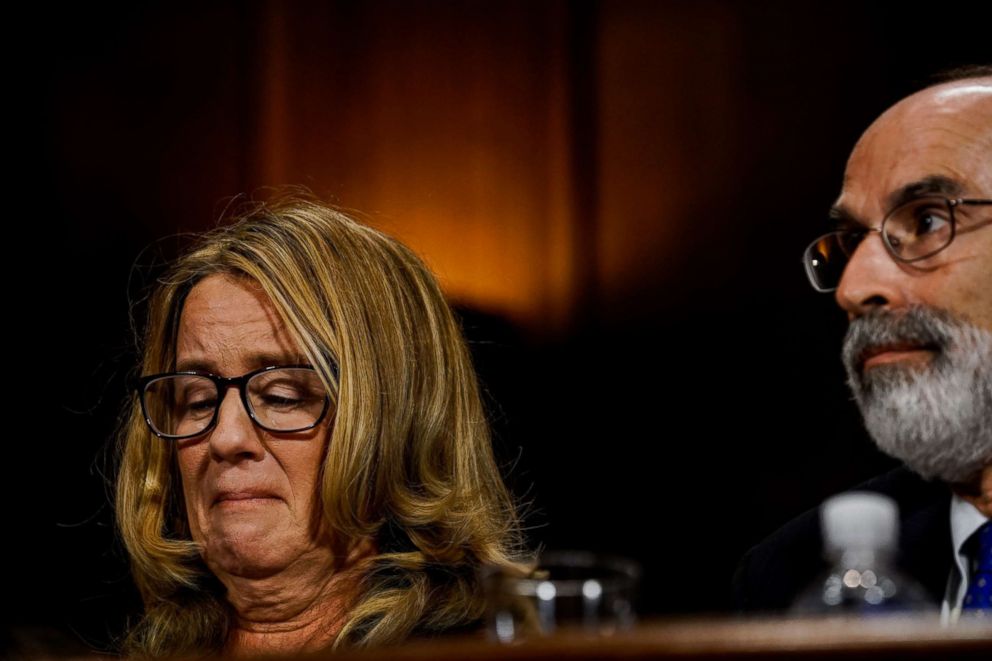
Ford, a college professor in California, alleges that Kavanaugh sexually assaulted her when they were both in high school in the Washington, D.C., area in the early 1980s.
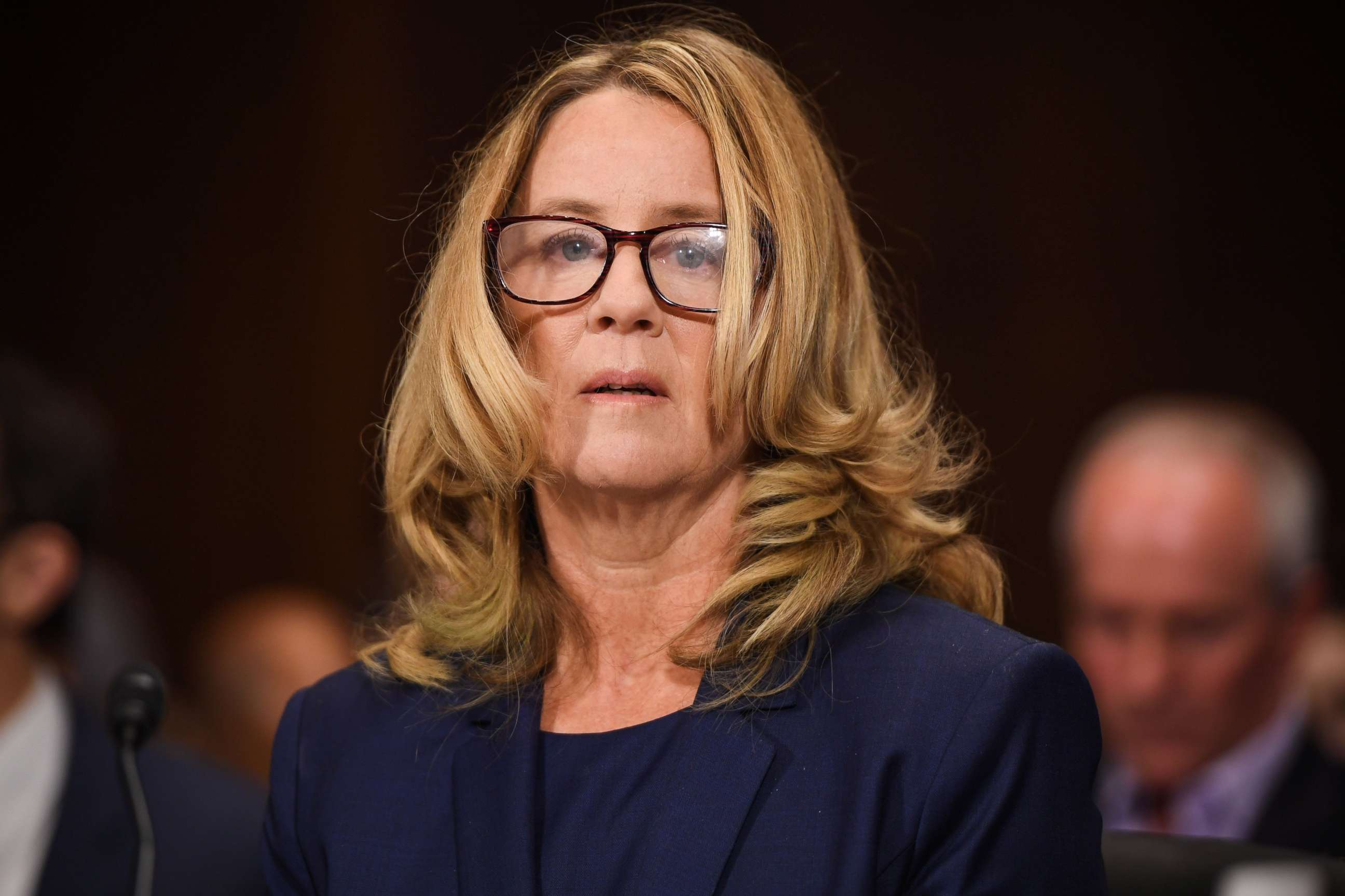
Kavanaugh, who faces two other sexual misconduct allegations in addition to Ford's, has vehemently denied all of the claims.
The fact that sexual assault has dominated the news cycle for the past several days has led advocates for sexual violence victims to issue a call to action for people to recognize that survivors need extra-self care and support.
Hashtags including #WhyIDidntReport, #BelieveWomen, #BelieveSurvivors and #IBelieveHer have all grown on social media since Ford came forward.
'It so much feels like a trial'
This week started with emotional victim statements read during the sentencing of Bill Cosby and is ending with Ford and Kavanaugh's Senate testimony.
The president has publicly weighed in on the sexual assault allegations against Kavanaugh, slamming the women who have come forward to accuse him and saying Kavanaugh is "an absolute gem."
(MORE: The most memorable moments from Christine Blasey Ford's testimony)
(MORE: Kavanaugh confirmation hearing captivates the nation, world)
As senators weigh in on whether the women accusing Kavanaugh of sexual misconduct should be believed, some survivors hear echoes of their own fears about what would happen if they reported the actions against them.
"It so much feels like a trial," said Morelan, who said she feared repercussions if she told her story. "Our culture is so messed up in how we deal with this that it’s easier for survivors to internalize than to stand up for what is right."

She added, "If this was a murder case, it wouldn't be handled this way."
Poore, NAESV's policy director, echoed that it is not just that sexual violence is in the national conversation now, but that it's a woman's story that is being questioned. Ford has reportedly received death threats and she and her family, including two sons, were forced to relocate from their California home.
"The tone of the discussion makes a big impact, too," Poore said. "When survivors are challenged or have mean things said on social media, that increases pain."
One out of every six women in the U.S. and one out of every 33 men have been the victim of an attempted or completed rape in her lifetime, according to an analysis of 2010 to 2014 Bureau of Justice Statistics by RAINN.
Only 23 percent of victims of rape or sexual assault reported those incidents to police in 2016, according to the Bureau of Justice Statistics.
"One of the main reasons that people don't report is that they are afraid that they won't be believed, so this just reinforces that," said Beverly Engel, a therapist and author, referring to the public questioning of Ford's allegation. "Women and men who come forward are often not believed."
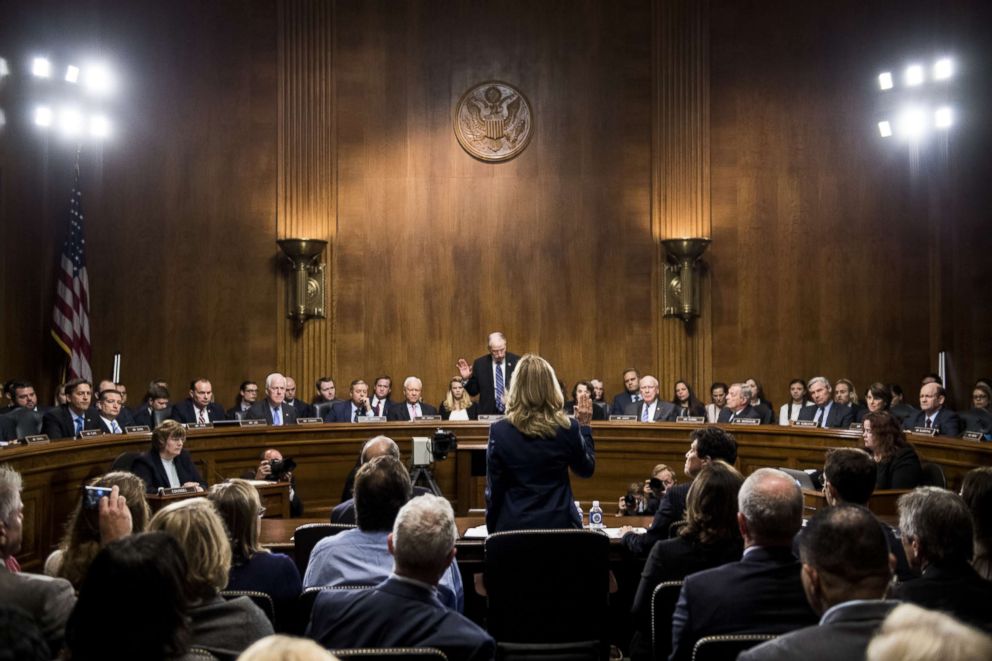
Advice for survivors: Seek support
The National Sexual Assault Hotline -- 800-656-HOPE -- is free, confidential and available 24 hours a day, seven days a week.
RAINN also has hotline resources available online at http://online.rainn.org. The National Alliance to End Sexual Violence also offers resources online at https://www.endsexualviolence.org/resources/.
Take a break and go easy on yourself
Poole said survivors should allow themselves to take a break from the news and social media and reach out for support.
"It's important to not assume that you would be able to do work and school and everything else at the same level," she said. "It's so important to be gentle with yourself, what you’re feeling, what your reactions are and what you need."
RAINN is offering a tutorial on its Twitter feed, for example, of how to mute tweets that contain specific words to lessen the impact of social media.
'Get angry'
The deep shame people can feel around assault also prevents them from seeking help, even as they become distressed by the images and words they see and hear on the news, Engel said.
"I also encourage clients to get angry, to feel their full force of anger," she said. "Anger can help alleviate shame because it empowers us. Shame is disempowering and anger empowers us to say, 'This was not right.'"
How to help victims of sexual violence
Advocates for victims of sexual violence can use their voices to remind victims that any reaction they have is okay and that they are supported, recommends Poore.
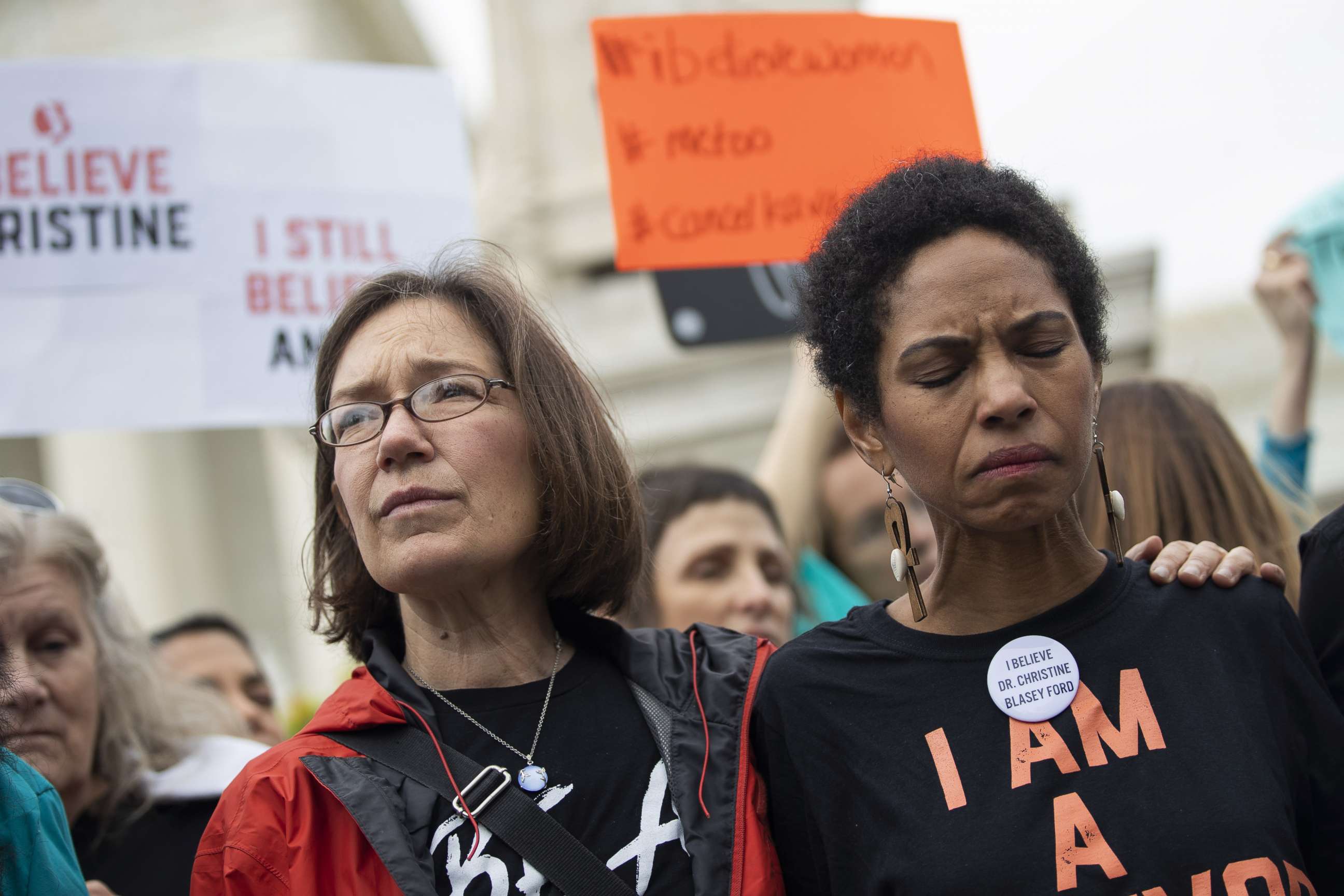
"People have a wide range of reactions to sexual violence when it happens and over time and if people feel comfortable sharing their story, that’s okay, and if they don’t, that’s okay, too," she said. "Whether they feel comfortable coming forward or not, they deserve good support."
Reach out to survivors
Morelan, the sexual assault survivor, points out that just letting a survivor know you are there and available can make a difference.
"Just check in and make sure they know they’re heard and that this doesn’t invalidate their experience," she said. "I’m trying to remind myself of the resources I have, the friends and family who have supported me."
'Be part of the solution'
Even if you think you don't know anyone who has been a victim, every person "has a responsibility to be part of the solution," notes Poore.
"Leadership is so important," she said. "If you hear a nasty joke, have the courage to say something. If you see something that doesn’t feel right, have the courage to interrupt. Be part of the solution."

